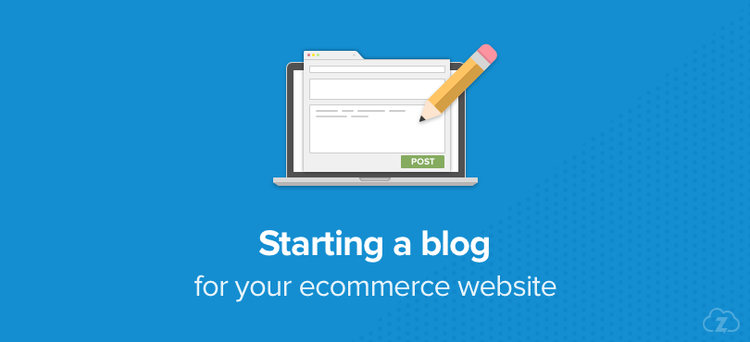Starting a blog for your ecommerce website

Starting a blog for your ecommerce website can be an effective way of improving your search engine ranking and attracting more potential customers. However, it’s not as simple as writing a few posts and hoping for the best. We take a look at the potential benefits of having a blog, how you can add one to your existing shop, and the metrics you should be tracking to ensure that your blog is benefiting your ecommerce business.
Why start a blog for your ecommerce website?
A blog can benefit all types of online shops. It can be easier to create engaging content for some products, such as clothing, but a blog can work for all products if you come up with useful and informative posts. If you’re just starting to sell on your own website, or looking to increase your website sales to balance out sales from eBay and Amazon, then a blog is an effective way to increase your discoverability.
Search engine optimisation
A blog is a great way to showcase your products, offer useful advice and establish your brand. However, the main benefit of starting a blog for your ecommerce website is improving your search engine optimisation (SEO). Search engines like Google use software to assess your website’s content for keywords and phrases to determine how relevant your site is in relation to what someone has typed into the search engine. SEO is the process of making sure your website is optimised for this software. You need to be using the right keywords and making sure the content of your site is useful to your audience.
Starting a blog will increase the number of pages that you can use to target the keywords associated with your business, including more long-tail search terms (phrases that are searched for less often but often mean that the person is looking for a specific item) that might not come up as often on your main website. This means there is a higher chance that people will come across your blog and then discover your shop. If you can commit to regularly posting on your blog you will be able to build up a good base of content related to your shop and in turn, this will also establish your brand as a source of useful information or inspiration.
Find out more about SEO for online sellers here.
What to post on your blog
A blog for your ecommerce website can be used for all sorts of things. Your main purpose will be to improve your SEO and where your website ranks in search results. However, it still needs to be interesting for potential customers to read and relevant to what you sell. Some ideas for topics include:
- Write posts about specific products, or types of products, the story behind them or how they can be used in your customer's life.
- Answer problems or offer practical guidance that relates to your products.
- Announce sales or promotions, highlighting specific products.
How to set up a blog
Shopify
Shopify websites come with blogging capabilities already built in, but you can also link a blog from an external platform such as Wordpress, Tumblr, or Blogger. Find out more about setting up a blog for your Shopify website here.
Magento
To set up a blog for your Magento website you will need to use a plug in. There are a number of different plugins for various blogging platforms, find out more here.
WooCommerce
Because WooCommerce is a plugin for Wordpress, it’s very simple to setup a blog. You just have to create a new page in your Wordpress admin, learn how here.
How to track your ecommerce blog
One of the easiest, free tools you can use to track the progress of your blog is Google Analytics. You’ll need to set up a Google account if you don’t already have one - find out how to get started with Google Analytics here. Once you’ve set it up on your website, you can use Google Analytics to set a number of different goals such as signing up for an account, completing a purchase. You’ll also be able to keep an eye on page views and where visitors to your site are coming from.
Find out more about using Google Analytics withWooCommerce, Magento and Shopify.
There are a number of different things you should be tracking for your blog and your shop:
- Overall visits: You want to see that this is increasing on a monthly basis
- Traffic source: Where people that are viewing your website are coming from. If you’re spending time promoting your shop or blog on social media, you can keep an eye on whether it’s paying off. And hopefully, your traffic from search engines should increase.
- Top viewed pages: Know which of your blog posts are the most popular and assess why. Make sure that your most popular pages link off to your actual shop, they need to direct visitors to your shop to make sure the effort that you’ve put in converts into sales.
- Track how well your blog posts are contributing to acquiring customers and increasing sales.
Learn more about using Google Analytics with your ecommerce site here.

